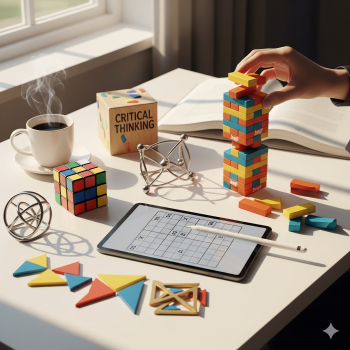Opening the Conversation: Why Avoid Comparing to Peers Matters
Talking about SAT prep can quickly turn into a scoreboard if we’re not careful. When conversations center on who scored higher or who’s taken more practice tests, students can feel judged, anxious, or discouraged. This blog offers gentle, practical scripts and conversational strategies that emphasize growth, personal goals, and mental well-being—without comparing progress to classmates, siblings, or friends.

Principles to Keep the Conversation Healthy
Before diving into specific scripts, it helps to agree on a few guiding principles for the way you talk about SATs at home or in counseling sessions. These principles keep the tone constructive, reduce pressure, and foster a growth mindset.
1. Emphasize process over results
Celebrate study habits, consistency, improved problem-solving strategies, and test-taking stamina. Results are useful data points, but the process is where students gain enduring skills.
2. Use “I” statements and curiosity
Parents and mentors should lead with curiosity rather than judgment. “I notice you’ve been studying late—how’s that going for you?” is kinder and more productive than “Why aren’t you scoring higher?”
3. Normalize ups and downs
Everyone has practice tests that go poorly. Treat those as information, not identity. A lower-than-expected score is an opportunity to adjust study focus—not evidence you can’t improve.
4. Focus on personal targets and values
Connect prep to the student’s own college goals, majors, scholarships, or career interests. When the aim is personal—getting into a program the student loves or qualifying for a scholarship—motivation shifts inward.
Scripts: What to Say—and What Not to Say
Below are practical, ready-to-use scripts for different moments: launching the topic, responding to stress, discussing scores, and planning next steps. Use these as templates and tweak the tone to fit your family.
1. Opening the topic gently
- Parent: “Would you like to talk about how your SAT prep’s going this week? I’m here to listen, not to judge.”
- Student: “I’ve been feeling unsure about how to study math questions with diagrams. Can we figure out a way that feels manageable?”
2. When a practice test is disappointing
- Parent: “I can see that score surprised you. Do you want to walk me through which sections felt hardest and why?”
- Student to parent: “I’m disappointed, but I want to understand the pattern—should we look at timing, question types, or both?”
3. When a student feels pressured to “beat” classmates
- Parent: “I know it’s tempting to compare, but what matters most is your path. Let’s focus on what progress looks like for you.”
- Student: “I don’t need to outscore anyone; I want to reach the score that helps me get into my top program.”
4. When discussing test day worries
- Parent: “Test day nerves are normal—what’s one small thing we can do tonight to help you sleep better?”
- Student: “I’ll set an alarm for a gentle wake-up and pack everything tonight so I don’t rush in the morning.”
5. When planning next steps
- Parent: “What would help you feel confident before the next practice test—more practice problems, a different study schedule, or maybe a few one-on-one sessions?”
- Student: “I’d like a targeted plan for the two math areas I’m missing. Let’s outline three things to try this week.”
How to Shift the Conversation From Comparison to Calibration
Comparison often masquerades as helpful information, but it usually distracts students from the very thing they need: a clear, individualized plan. Here’s how to steer the conversation back to calibration—measuring progress against the student’s goals and not other people.
Ask data-driven, action-oriented questions
Instead of, “How did Jamie do?” ask, “Which question types took you the longest, and what will you try differently next time?” This makes conversations practical, specific, and empowering.
Set personal benchmarks
Help students create realistic short-term targets (e.g., improving a subsection by 20 points, reducing careless errors by half in three weeks) and celebrate the micro-wins along the way.
Concrete Scripts for Parents: Supporting Without Overstepping
Parents often want to help but can unintentionally raise pressure. These scripts help offer support, invite collaboration, and keep the student in the lead.
- “I’m proud of how you’re managing this. Would you like me to quiz you on vocabulary once a week, or would you prefer I check in about your schedule?”
- “I noticed you study late. If sleep’s getting in the way, we can try shifting things earlier or shortening sessions.”
- “If you want help finding a tutor or creating a study plan, I can look into options. What would be most useful?”
Concrete Scripts for Students: Staying Centered and Self-Advocating
Students can use these lines to keep conversations focused on their needs without minimizing others’ achievements.
- “I appreciate you asking—right now I’m focusing on improving my reading stamina and timing.”
- “I saw a friend’s score, but I’m trying not to compare. I want to track my own progress week-to-week.”
- “I’d like to try targeted practice for geometry next week. Could we schedule quiet study time each evening?”
Sample Weekly Check-In Template (Parent-Student)
Use this outline to make weekly conversations predictable, low-stakes, and constructive. A predictable structure reduces anxiety around each check-in.
- 1-minute mood check: student describes how they feel about studying this week.
- 2-minute wins: note any improvements or successful strategies.
- 3-minute challenges: identify 1–2 areas for adjustment.
- 2-minute plan: agree on one or two small, concrete actions for the next week.
How to Use Practice Data Without Comparison
Practice test scores tell stories—about timing, content gaps, and test-day stamina. Use those stories to adjust study plans, not to rank the student socially.
Example: From Data to Action
Imagine a student’s practice shows consistent errors on multi-step algebra questions and time pressure in the reading section. A non-comparative action plan might look like:
- Targeted practice: 3 sets of multi-step algebra problems per week with step-by-step annotations.
- Time practice: one half-length timed reading passage twice per week to build stamina.
- Reflection log: brief notes after each practice test about what felt rushed or confusing.
One-on-One Support: When to Bring in a Tutor (and How to Talk About It)
Sometimes individualized support accelerates progress more kindly than pushing more hours alone. If a student is plateauing, feeling stuck, or needs confidence-building, a tutor can help.
Natural Ways to Suggest Tutoring
- “It might be helpful to get a specialist for geometry—someone who can tailor practice to your exact gaps. Would you like me to research options?”
- “You study so efficiently; a short run of 1-on-1 sessions could give you a new toolbox of strategies.”
At this point it’s natural to mention Sparkl’s personalized tutoring: “If you’re open to it, Sparkl offers 1-on-1 guidance, tailored study plans, and expert tutors who combine human coaching with AI-driven insights to zero in on trouble areas—without pressuring you to compete with others.” Keep the focus on fit and choice.
Table: Conversation Starters by Situation
| Situation | Quick Script | Goal of the Script |
|---|---|---|
| Student stressed before test | “Tell me one thing you’re worried about and one thing you feel ready for.” | Separate worry from competence; find a calming focus. |
| Comparison brought up | “I’m glad for them. For you, what would feel like success?” | Redirect to personal goals. |
| Low practice score | “Okay, let’s pick two question types to practice next week.” | Turn data into an actionable mini-plan. |
| Student unmotivated | “What’s one small study habit that feels doable this week?” | Lower activation energy; build momentum. |
Practicing the Scripts: Role-Play Exercises
Role-play helps both parents and students build muscle memory for kinder, clearer conversations. Try these short exercises twice a month:
- 10-minute mock check-in: parent uses the weekly template while the student practices answering calmly.
- 3-minute worst-case script: role-play a disappointing score and practice the “data to action” response.
- Gratitude round: end by naming one thing that went well in prep that week.
When Comparison Creeps Back In: Gentle Corrections
Comparison will pop up—social media highlights and school chatter are unavoidable. Have a set of short corrections ready so the conversation can return to a healthier track quickly.
- “I hear you—but I’m focused on your plan.”
- “That’s interesting to know. What’s important for you is…”
- “Let’s put that aside and look at the next steps that would help you.”
Real-World Context: Why a Personalized Approach Works Better
College admissions look at students holistically. Test scores are important, but admissions officers also value rigor of coursework, essays, extracurriculars, and demonstrated growth. A personalized prep approach helps students improve scores while preserving mental health and pursuing meaningful activities.
Personalized help—whether through school counselors, a trusted tutor, or services like Sparkl—lets students focus on exactly what they need: targeted skill work, pacing strategies, or confidence-building. Mentioning Sparkl naturally: “Sparkl’s tutoring pairs expert tutors with AI-driven insights to craft tailored study plans, so students spend less time guessing what to study and more time strengthening the right skills.”
FAQs: Quick Answers to Common Concerns
Q: How often should we talk about SAT prep?
A: Short, focused weekly check-ins are usually best. Daily monitoring feels like micromanagement; monthly check-ins may be too sparse. Weekly keeps momentum without creating pressure.
Q: What if my teen reacts angrily or shuts down?
A: Stay calm and brief. Offer space and revisit when emotions have settled. Use a one-line reassurance like, “I’m here when you want to talk, and I want to help, not add pressure.”
Q: When should we consider professional tutoring?
A: If progress plateaus despite consistent effort, if anxiety interferes with performance, or if specific content areas resist improvement, targeted tutoring can be very effective. Short, focused tutoring runs (e.g., 6–10 sessions) often produce measurable gains.
Practical Study Tips That Support These Conversations
Pair your new conversation style with study habits that minimize burnout and maximize learning.
- Short, frequent sessions: 30–50 minutes with a clear objective beats marathon sessions.
- Active practice over passive review: do problems, explain answers aloud, and correct mistakes intentionally.
- Mix content with strategy work: learn how test questions are structured and how timing works.
- Track small metrics: percent of correct answers by question type, not just total score.
Final Thoughts: Make the SAT One Chapter, Not the Whole Story
The SAT is an important milestone for many students, but it’s one piece of a much larger journey. Conversations framed around growth, personal targets, and supportive action plans help students build skills that last beyond any single test. Keep the focus on the student’s needs—celebrate effort, use practice data wisely, and bring in external help like a one-on-one tutor when it genuinely serves the student’s goals.
If you’re thinking about tutoring, consider options that emphasize personalization. For instance, many families find value in programs that combine expert tutors and tailored study plans—tools that provide AI-driven insights while keeping an experienced educator at the center. That blend helps avoid generic, one-size-fits-all prep and keeps the student at the heart of the process.
Parting Script: A Short, Compassionate Way to Wrap Up Any SAT Talk
“Thanks for sharing how this week went. I’m proud of the effort you put in. Let’s pick one small thing to try next week and check back in. If you want extra support, we can try a few short tutoring sessions to focus where it helps the most.”

Use these scripts, tailor them to your family’s voice, and remember: the most helpful conversations are those that center the student’s growth and wellbeing. That’s how you make SAT prep sustainable, effective, and—yes—even a little bit kind.














No Comments
Leave a comment Cancel